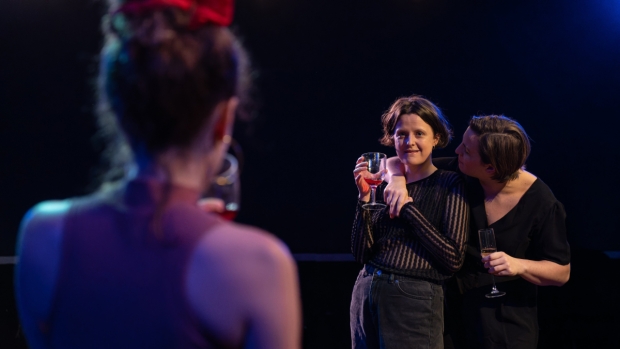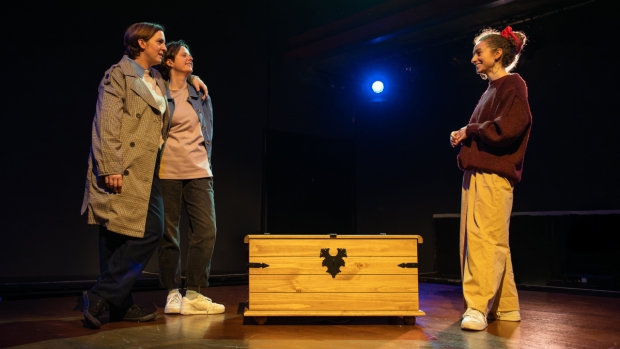”The Beach House” at the Park Theatre review – a superbly acted but uneven look at female connections

© David Monteith Hodge
It makes for pretty unedifying viewing, but made watchable by the superb acting in Bethany Pitts’s simple but clear and classy staging, and also by Harper’s understated storytelling, and leavenings of humour. Having established a credible dynamic between the three women (pregnant businesswoman Kate and songwriter Liv are in the early stages of a relationship, setting up home together, and needy, free-spirited Jenny periodically breezes in to upset their domestic applecart) then having fleshed it out with telling details and well-turned dialogue, Harper throws a couple of plot curveballs that don’t quite land. Jenny running off to join the circus doesn’t entirely ring true, nor does the idea that somebody with Liv’s level of success and connections within the music industry ends up working in an all-night garage.
The most egregious of these inconsistencies though is a last-minute job promotion that sees one of the characters being expected to relocate to the other side of the planet with days to spare. This feels like a slightly clumsy attempt to wrap up the plot and hasten the play’s conclusion, despite the conviction of the performances.
For all that though, there is still much here to enjoy. If Harper’s writing sometimes leans a little heavily into the similes (“You’re like a bullet train! You go too fast…you don’t stop!”), it captures accurately the cadences and concerns of modern-day First World living: most of what comes out of these women’s mouths is relatable and believable, and the interconnecting relationships genuinely convince. Since Liv, arguably the most sympathetic of the women, is a composer, it’s fitting that Bethany Pitts’s direction achieves a sort of fluid musicality. It has a lovely pace and freshness and makes a virtue out of the intimate in-the-round space. Designers Cara Evans (set) and Laura Howard (lighting) dress that space with only a trunk and a shimmering overhead light effect to evoke a seaside dwelling swamped with the endearing chaos of a newborn in the house. It’s all we get, but also all we need.

© David Monteith Hodge
The acting is faultless. Gemma Lawrence’s beautifully wrought Liv, caught between two sisters whose bond is both stronger and more toxic than it initially appears to be, is an emotionally complex, open-hearted centre to the story. Kathryn Bond suggests a troubling ruthlessness underneath Kate’s facade of sensitivity and sensibility, and Gemma Barnett makes real and vivid Jenny’s beguiling mixture of mess and melancholy.
Ultimately what proves frustrating is that Harper’s script feels as though it’s one draft away from being a really good play. There’s some compelling writing here and, for all its negativity, it is refreshing to encounter a female-led story that isn’t afraid to tackle the sourness at the heart of some families. A mixed bag maybe, but worth seeing.














